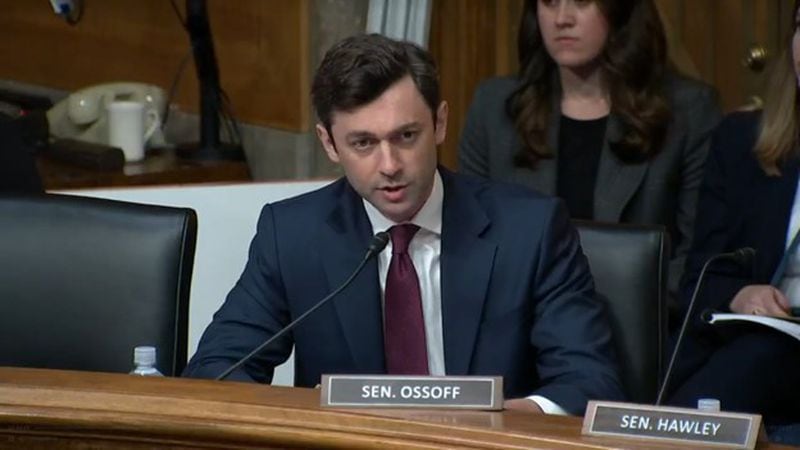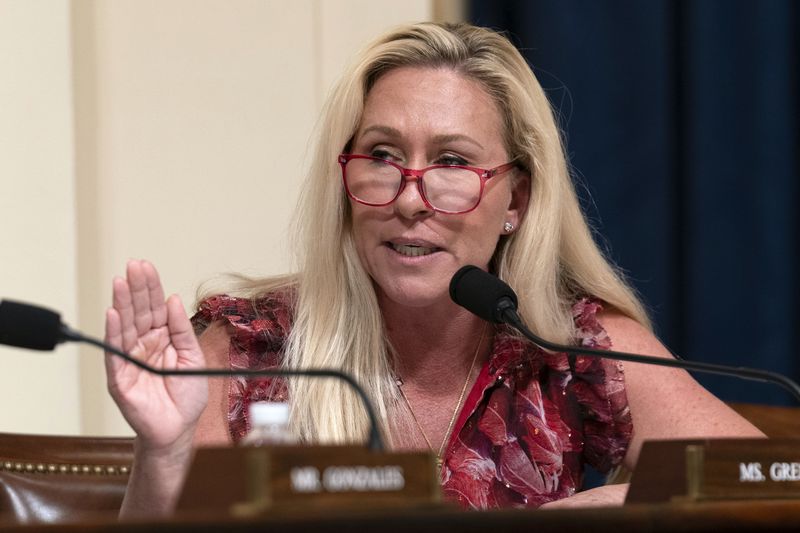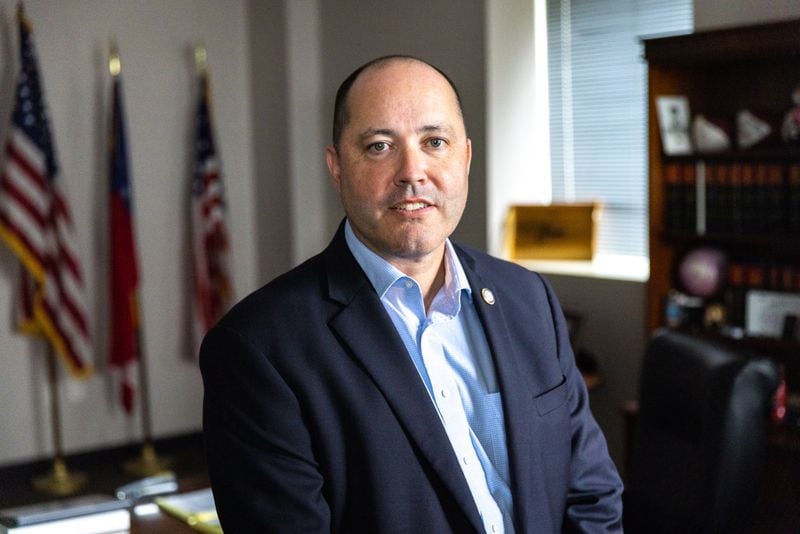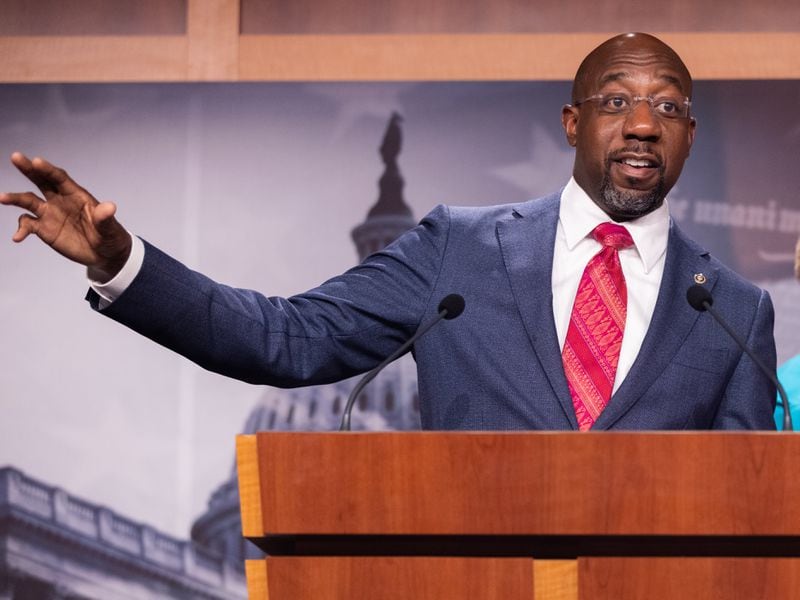More likely to be dropped from coverage as state recertifies recipients
Nearly 600,000 Georgians have lost their Medicaid coverage and more are likely to join them with a few months still to go in the process of requalifying recipients.
Missing paperwork was cited in the cases of 504,000 Georgians now lacking coverage under the state-federal health insurance program for poor children and some poor adults.
Georgia, at 84%, is among the 10 states that saw the largest share of recipients who lost coverage because of missing paperwork, according to the health research organization KFF.
The requalifying of recipients came after the three-year public health emergency in response to the COVID-19 pandemic. Over that time, no one on Medicaid was required to update their paperwork to show they still qualified. As a result, Georgia’s Medicaid rolls grew to cover 2.8 million people, about a quarter of the state’s population.
The federal government last year asked all states to recertify Medicaid recipients and drop those who no longer qualify or who didn’t complete the required paperwork.
States were given more than a year to do the work, and that deadline is looming. But the task was so big that on Jan. 1 the federal government ordered states to pause the disenrollment of children and to concentrate instead on adults. As of 2019, 56% of Georgia Medicaid enrollees were age 18 or under, according to KFF.
State Department of Community Health spokeswoman Fiona Roberts said some Georgians have obtained other insurance and never reapplied for Medicaid. Roberts couldn’t provide an exact number, but she pointed to KFF data showing that since Medicaid reevaluations began last year, 276,000 Georgians who at some time in their lives had Medicaid have now obtained private health insurance through Affordable Care Act.
Credit: Screenshot
Credit: Screenshot
Ossoff turns up heat on postmaster general over delays in service
The U.S. Postal Service is providing on-time delivery of first-class mail in the Atlanta area only 36% of the time.
That nugget came this past week during testimony before the U.S. Senate Homeland Security and Governmental Affairs Committee.
For weeks, mail has been moving slowly at the new Atlanta Regional Processing and Distribution Center in Palmetto. The delays have left customers exasperated. They also didn’t do much for the demeanor of U.S. Sen. Jon Ossoff as he questioned Postmaster General Louis DeJoy, telling him that he had “weeks, not months, to fix this.”
“I have constituents with prescriptions that aren’t being delivered,” Ossoff said. “I’ve got constituents who can’t pay their rent and their mortgages. I’ve got businesses who aren’t able to ship products or receive supplies.”
DeJoy said the problems are rooted in the Postal Service’s outdated infrastructure and processes caused by chronic underfunding, saying pursuit of its “long-term viability should have begun over a decade earlier.”
Ossoff pushed back.
“Do you think that one of your private-sector competitors would have rolled out a new system that would reduce on-time delivery to 36% and then say it’s going to take months to fix it? ... I wrote you on March 14. Did you get my letter?” Ossoff asked DeJoy.
DeJoy said he had not read Ossoff’s letter. That didn’t sit well with the senator.
“You should personally read letters from members of the U.S. Senate committee that oversees your operations,” he told DeJoy, “particularly where you are failing abysmally to fulfill your core mission.”
Credit: Jose Luis Magana/AP
Credit: Jose Luis Magana/AP
Greene proposal to oust speaker gains support and opposition
U.S. Rep. Marjorie Taylor Greene picked up a Republican congressional ally for her plan to oust House Speaker Mike Johnson, but the proposal gained a big opponent closer to home.
Kentucky U.S. Rep. Thomas Massie announced that he was joining Greene, R-Rome, as a co-sponsor for her resolution calling for Johnson to be stripped of his title.
Gov. Brian Kemp wasn’t so supportive.
“Instead of bickering amongst themselves and handing Democrats control of the House, Republicans should do their damn job and vote on the important issues facing our nation,” Kemp wrote on X, the site formerly known as Twitter. “Enough is enough. I support @SpeakerJohnson.”
Greene — who’s upset with Johnson for working with Democrats to pass legislation, such as funding measures to keep the government running — filed her resolution weeks ago. But she told reporters she still has no timeline for when she could call for a vote to oust Johnson. She indicated she would want a replacement identified first and that she doesn’t yet have one in mind.
Credit: Arvin Temkar/AJC
Credit: Arvin Temkar/AJC
Carr: State probe into election software breach in Coffee County is ongoing
Georgia Attorney General Chris Carr said this past week that the state’s investigation into a breach in Coffee County, where tech experts and supporters of then-President Donald Trump copied Georgia’s election software, is still ongoing.
The GBI completed its Coffee County investigation in August, but the attorney general’s office hasn’t pursued prosecutions. Fulton County did, however, as part of its larger investigation into election interference that led to an indictment against Trump and 18 co-defendants, including four with ties to the Coffee County case. Two have since pleaded guilty: attorney Sidney Powell and bail bondsman Scott Hall.
“I’m not going to get into the specifics of it,” Carr said on the “Politically Georgia” podcast, “but let me just say this: Anytime a prosecutor is given a case from investigators, that doesn’t necessarily mean the case is over and it doesn’t need further investigation or further analysis.”
Several civil rights leaders sent a letter to the FBI and the Department of Justice seeking an investigation about the theft of election data after the 2020 election not only in Coffee County but also Arizona and Michigan. as a “multi-state scheme by allies and attorneys of Donald Trump.”
“The theft of Georgia’s voting system software could enable election subversion, threaten election integrity and introduce new threats to disenfranchise voters in future elections,” the letter states. “… The Department of Justice cannot rely on Georgia’s state and local officials to responsibly refer these alleged election crimes to their federal counterparts.”
The letter was signed by Cliff Albright of Black Voters Matter, Tabitha Paulk of the NAACP of Coffee County, Kathryn Grant of Safe to Thrive, former Douglas City Councilwoman Olivia Coley-Pearson and Gaines Chapel AME Pastor Bruce Francis.
Audit raises questions about debit cards distributed before 2022 election
The state Department of Human Services did not follow state procedure in its handling of a federally-funded $1.1 billion contract to give debit cards to low-income Georgians shortly before Gov. Brian Kemp’s reelection in 2022, according to a report from the Department of Audits and Accounts.
Georgia Democrats, citing the report, called for the state to launch an investigation. Senate Democratic Caucus Chairwoman Elena Parent of Atlanta said the optics make it look like Kemp used the cards — which were funded with federal COVID-19 aid and featured his name — to give himself an edge in persuading voters ahead of the election.
The Department of Administrative Services requires state agencies to obtain approval for large purchases and put the call for proposals on the Georgia Procurement Registry. Instead, the DHS and the governor’s Office of Planning and Budget directly solicited proposals from four companies to distribute the cash cards and selected one within a week.
The governor’s office referred questions to the DHS, which said federal rules don’t require a full procurement process when trying to get money to low-income Georgians as quickly as possible.
Regents vote to boost tuition costs
For the first time since 2019, the Board of Regents voted to increase tuition throughout the University System of Georgia.
In-state tuition is set to go up 2.5% in the fall.
U.S. students from outside Georgia will pay 5% more; foreign students will pay 2% more on top of that.
For students at the University of Georgia, tuition will be $5,017 in-state, $15,136 out-of-state and $15,424 out-of-country. Students at Georgia Tech will be charged $5,256 in-state, $16,469 out-of-state and $16,783 out-of-country.
Credit: Nathan Posner for the AJC
Credit: Nathan Posner for the AJC
Campaign finance reports start rolling in
It’s time once again for Georgia politicians to start filing their financial disclosures. More are sure to come, but here’s what we know so far:
- Democratic U.S. Sen. Raphael Warnock and Republican Herschel Walker still have plenty of cash sitting around after their faceoff in 2022. Warnock, who won’t be up for reelection again until 2028, has banked $5.4 million, and Walker has $4.3 million in cash on hand.
- Democratic U.S. Sen. Jon Ossoff, who is up for reelection in 2026, has socked away roughly $3.5 million.
- Democratic U.S. Rep. Lucy McBath of Marietta, running in a new district for the third straight election, reported having $1.3 million in the bank for her run in the recently redrawn 6th Congressional District.
- In the 3rd Congressional District’s race to fill the open seat following U.S. Rep. Drew Ferguson’s retirement, former state Sen. Mike Crane reported $442,000 in cash on hand, including a $40,000 loan. Former Senate Majority Leader Mike Dugan has about $200,000 in his account. Two other prominent Republicans in the race, ex-state Rep. Philip Singleton and former Donald Trump aide Brian Jack have yet to file.
Political expedience
- Fines are fine: The U.S. Supreme Court rejected a request by U.S. Rep. Andrew Clyde of Athens and two other Republicans to review the fines they received after they refused to pass through metal detectors before accessing the House floor in the months after the Jan. 6, 2021, attack on the Capitol. Clyde, Pennsylvania U.S. Rep. Lloyd Smucker and former Texas U.S. Rep. Louie Gohmert had asked the court to intervene in hopes of overturning the $5,000 fines each had received.
- Not so hot for Scott: Some GOP members of Congress weren’t so happy when U.S. Rep. Austin Scott, R-Tifton gained a prized appointment on the House Rules Committee. The Daily Signal, a conservative news publication run by the Heritage Foundation, ran a story with anonymous quotes from GOP lawmakers and staffers on Capitol Hill who attacked Scott, branding him as a hothead. Scott has been critical of House GOP rebels and members of the Freedom Caucus. “We’ve got a faction in the Republican Party that’s never going to vote for anything unless they get it exactly like they want it,” Scott said earlier this year. “That’s not the way democracy works.”












